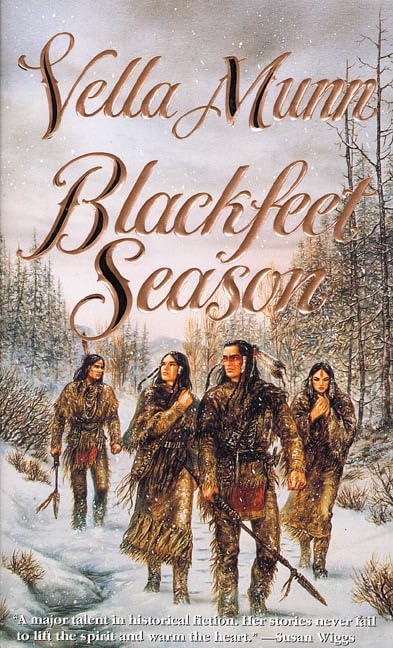Native American Fiction
Explore the best Native American fiction books with our curated list of powerful stories, cultural insights, and compelling narratives by Indigenous authors.


Book
War Cry
by Donald Clayton Porter
A call to battle and a woman's arms--a bold rebel challenged his legacy and his nation.

Book
One Thousand White Women
by Jim Fergus
Based on an actual historical event but told through fictional diaries, this is the story of May Dodd—a remarkable woman who, in 1875, travels through the American West to marry the chief of the Cheyenne Nation. One Thousand White Women begins with May Dodd’s journey into an unknown world. Having been committed to an insane asylum by her blue-blood family for the crime of loving a man beneath her station, May finds that her only hope for freedom and redemption is to participate in a secret government program whereby women from “civilized” society become the brides of Cheyenne warriors. What follows is a series of breathtaking adventures—May’s brief, passionate romance with the gallant young army captain John Bourke; her marriage to the great chief Little Wolf; and her conflict of being caught between loving two men and living two completely different lives. “Fergus portrays the perceptions and emotions of women...with tremendous insight and sensitivity.”—Booklist “A superb tale of sorrow, suspense, exultation, and triumph.” —Winston Groom, author of Forrest Gump

Book
Lake in the Clouds
by Sara Donati
In her extraordinary novels Into the Wilderness and Dawn on a Distant Shore, award-winning writer Sara Donati deftly captured the vast, untamed wilderness of late-eighteenth-century New York and the trials and triumphs of the Bonner family. Now Donati takes on a new and often overlooked chapter in our nation’s past—and in the life of the spirited Bonners—as their oldest daughter, the brave and beautiful Hannah, comes of age with a challenge that will change her forever. Masterfully told, this passionate story is a moving tribute to a resilient, adventurous family and a people poised at the brink of a new century. It is the spring of 1802, and the village of Paradise is still reeling from the typhoid epidemic of the previous summer. Elizabeth and Nathaniel Bonner have lost their two-year-old son, Hannah’s half brother Robbie, but they struggle on as always: the men in the forests, the twins Lily and Daniel in Elizabeth’s school, and Hannah as a doctor in training, apprenticed to Richard Todd. Hannah is descended from healers on both sides—one Scots grandmother and one Mohawk—and her reputation as a skilled healer in her own right is growing. After a long night spent attending to a birth, Elizabeth and Hannah encounter an escaped slave hiding on the mountain. She calls herself Selah Voyager, and she is looking for Curiosity Freeman—a former slave herself, one of the village’s wisest women and Elizabeth’s closest friend. The Bonners take Selah, desperately ill, to Lake in the Clouds to care for her, and with that simple act they are drawn into the secret life that Curiosity and Galileo Freeman and their grown children have been leading for almost ten years. The Bonners will do what they must to protect the Freemans, just as Hannah will protect her patient, who presents more than one kind of challenge. For a bounty hunter is afoot—Hannah’s childhood friend and first love, Liam Kirby. While Elizabeth and Nathaniel undertake a treacherous journey through the endless forests to bring Selah to safety in the north, Hannah embarks on a very different journey to New-York City, with two goals: to learn the secrets of vaccination against smallpox, a disease that threatens Paradise, and to find out what she can about Liam’s immediate past and what caused him to change so drastically from the boy she once loved. The obstacles she faces as a woman and a Mohawk make her confront questions long avoided about her place in the world. Those questions follow her back to Paradise, where she finds that the medical miracle she brings with her will not cure prejudice or superstition, nor can it solve the problem of slavery. No sooner have the Bonners begun to rebound from their losses—old and new—than they find themselves confronted by more than one old enemy in a battle that will test the strength of their love for one another. Hannah faces the decision she has always dreaded: will she make a life for herself in a white world, or among her mother’s people?
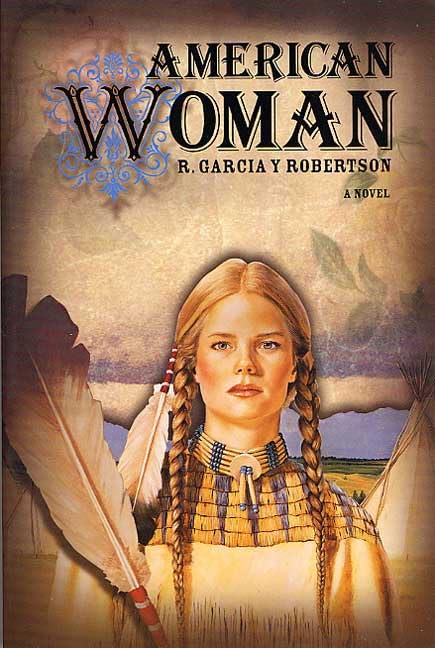
Book
American Woman
by R. Garcia y Robertson
The Battle of the Little Big Horn from the Indian point of view. The novel is narrated by Sarah Kilory, a white Quaker schoolteacher from Pennsylvania who went west to teach Indian children. She married an Indian chief, led a nomadic life, and through her eyes is seen the white invasion and the events that led to the battle. By the author of The Spiral Dance.

Book
The Journey of Crazy Horse
by Joseph M. Marshall III
Drawing on vivid oral histories, Joseph M. Marshall’s intimate biography introduces a never-before-seen portrait of Crazy Horse and his Lakota community Most of the world remembers Crazy Horse as a peerless warrior who brought the U.S. Army to its knees at the Battle of Little Bighorn. But to his fellow Lakota Indians, he was a dutiful son and humble fighting man who—with valor, spirit, respect, and unparalleled leadership—fought for his people’s land, livelihood, and honor. In this fascinating biography, Joseph M. Marshall, himself a Lakota Indian, creates a vibrant portrait of the man, his times, and his legacy. Thanks to firsthand research and his culture’s rich oral tradition (rarely shared outside the Native American community), Marshall reveals many aspects of Crazy Horse’s life, including details of the powerful vision that convinced him of his duty to help preserve the Lakota homeland—a vision that changed the course of Crazy Horse’s life and spurred him confidently into battle time and time again. The Journey of Crazy Horse is the true story of how one man’s fight for his people’s survival roused his true genius as a strategist, commander, and trusted leader. And it is an unforgettable portrayal of a revered human being and a profound celebration of a culture, a community, and an enduring way of life. "Those wishing to understand Crazy Horse as the Lakota know him won't find a better accout than Marshall's." -San Francisco Chronicle
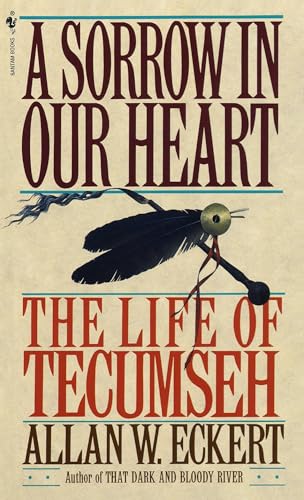

Book
Ride the Wind
by Lucia St. Clair Robson
NATIONAL BESTSELLER • The story of Cynthia Ann Parker and the last days of the Comanche In 1836, when she was nine years old, Cynthia Ann Parker was kidnapped by Comanche Indians from her family's settlement. She grew up with them, mastered their ways, and married one of their leaders. Except for her brilliant blue eyes and golden mane, Cynthia Ann Parker was in every way a Comanche woman. They called her Naduah—Keeps Warm With Us. She rode a horse named Wind. This is her story, the story of a proud and innocent people whose lives pulsed with the very heartbeat of the land. It is the story of a way of life that is gone forever. It will thrill you, absorb you, touch your soul, and make you cry as you celebrate the beauty and mourn the end of the great Comanche nation.
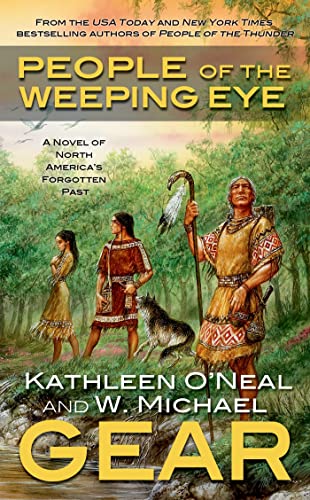
Book
People of the Weeping Eye
by W. Michael Gear
In this epic tale of survival set in Paleolithic America, the authors of "People of the Nightland" take readers to the banks of the great Mississippi River more than one thousand years ago.
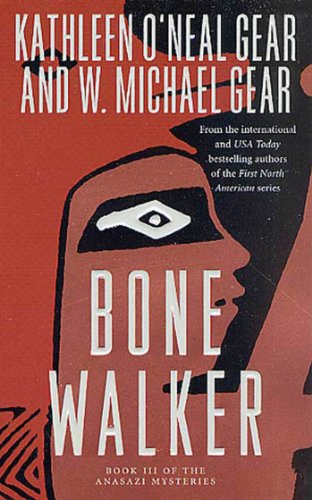
Book
Bone Walker
by Kathleen O'Neal Gear
A blend-of ancient history and intriguing mystery of one of the most enigmatic people to ever inhabit this continent--the Anasazi.



Book
Walk in My Soul
by Lucia St. Clair Robson
Tiana was a Cherokee woman. She grew up learning the magic, spells, and nature religion of her people. Before Sam Houston became the father of Texas, he was a young man who had run away from his home in Tennessee to live among the Cherokee. He came to love Tiana. As the Cherokee would say, she walked in his soul. But Sam was a white man, and Tiana, a Cherokee. And the dreams each had for their land and their people were far apart.... "From the Paperback edition."
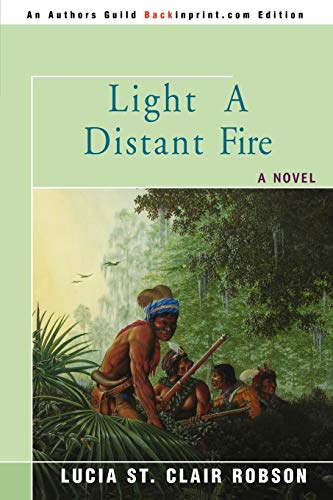
Book
Light a Distant Fire
by Lucia St. Clair Robson
Threatened with forced removal from their Florida homeland, the Seminole and Miccosukee Indians took up arms. Using alligator-infested swamps to their advantage, they fought the U.S. Army to a standstill. Unable to win militarily, General Thomas Jesup captured his enemies under flags of truce. With most of their people transported west, fewer than a hundred remained hidden in the heart of the Everglades, members of the only tribe never to surrender. " powerfully recreates the mid-19th century Seminole Indian Wars and the life of Osceola, who courageously led his people against unjust U.S. government policies."-Publishers Weekly
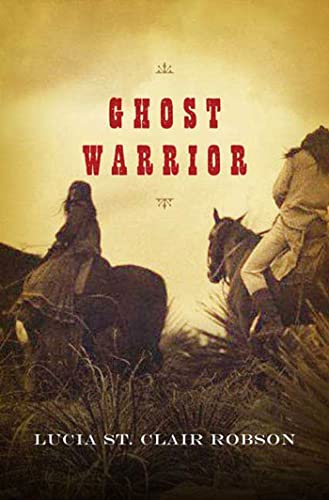


Book
From where the Sun Now Stands
by Will Henry
This Spur Award-winning novel tells of the 113 days in the summer of 1877 when Chief Joseph reluctantly led his people in a rear-guard action from the Nez Perce reservation in Oregon to Montana, across more than 1,000 miles of trackless country. Here is the saga of loyalty and treachery, tragedy and triumph.
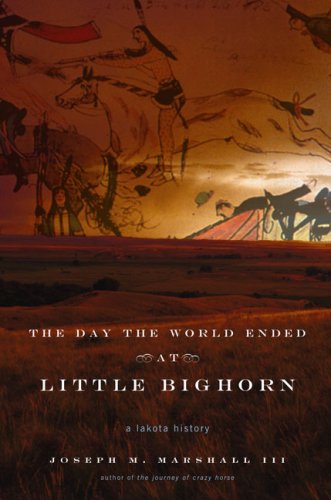
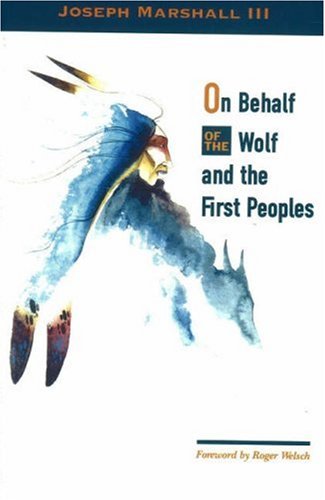
Book
On Behalf of the Wolf and the First Peoples
by Joseph Marshall III
An important book for those who love the West and are concerned about the natural world and the sacredness of all life (not just human beings). Joseph Marshall III also addresses issues common to contemporary Native Americans, such as the definition of 'Indian art' and the stereotypical Indian portrayed in film.


Book
Mountain Windsong
by Robert J. Conley
A Cherokee grandfather and grandson retell the story of Waguli, a young Cherokee forced into exile in Oklahoma, and his fiancee, Oconeechee, who remains behind in hiding and searches for him
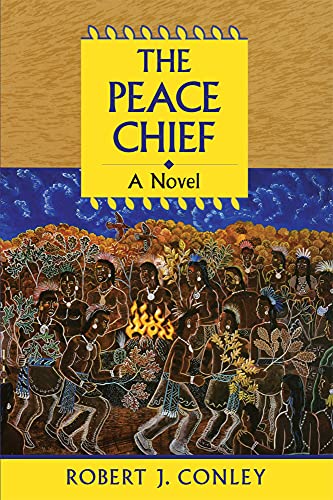

Book
The Cherokee Nation
by Robert J. Conley
Robert Conley's history of the Cherokees is the first to be endorsed by the Cherokee Nation and to be written by a Cherokee.


Book
A Name of Her Own
by Jane Kirkpatrick
Based on the life of Marie Dorion, the first mother to cross the Rocky Mountains and remain in the Northwest, A Name of Her Own is the fictionalized adventure account of a real woman’s fight to settle in a new landscape, survive in a nation at war, protect her sons and raise them well and, despite an abusive, alcoholic husband, keep her marriage together. With two rambunctious young sons to raise, Marie Dorion refuses to be left behind in St. Louis when her husband heads West with the Wilson Hunt Astoria expedition of 1811. Faced with hostile landscapes, an untried expedition leader, and her volatile husband, Marie finds that the daring act she hoped would bind her family together may in the end tear them apart. On the journey, Marie meets up with the famous Lewis and Clark interpreter, Sacagawea. Both are Indian women married to mixed-blood men of French Canadian and Indian descent, both are pregnant, both traveled with expeditions led by white men, and both are raising sons in a white world. Together, the women forge a friendship that will strengthen and uphold Marie long after they part, even as she faces the greatest crisis of her life, and as she fights for her family’s very survival with the courage and gritty determination that can only be fueled by a mother’s love.

